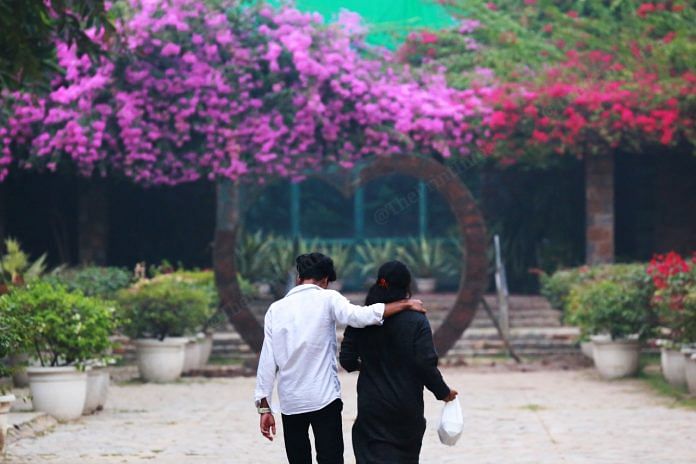New Delhi: The Calcutta High Court has urged adolescent girls to restrain their sexual impulses and not succumb to “two minutes of pleasure”, while asking adolescent boys to “respect” young girls and women and their dignity and bodily autonomy.
The Division Bench of Justices Partha Sarathi Sen and Chitta Ranjan Dash was dealing with an appeal filed by one Probhat Purkait against the order of a Calcutta trial court. Probhat had been accused and convicted under The Protection of Children from Sexual Offences (POCSO) Act for engaging in consensual sexual relationship with an underage girl.
Quashing the FIR, the HC expressed concerns over the child welfare legislation POCSO Act equating consensual acts among adolescents with sexual abuse and advocated for decriminalising consensual sexual acts involving adolescents above 16 years.
“Instead of protecting adolescents from abuse, the law exposes those in factually consensual and non-exploitative relationships to the risk of a criminal prosecution and compromises the child protection mandate,” it said.
The court also called for comprehensive rights-based sexual education for adolescents to avoid legal complications arising from sexual relations at a young age.
However, it added that a “rights-based solution” is not the end-all solution to the problem of age of consent. There must be a “duty/obligation based approach” by adolescents, said the court, listing the duties for young girls, which include protecting her own right to integrity, self-worth, and dignity.
The court said that while there are hormones in the body, the “activation” of these hormones is due to sexual urges, which are not normal and normative. They are “activated” by “stimulation” and adolescents must make efforts to “cease their sexual desires”.
Also Read: ‘No live-streaming of raids’ — Calcutta HC issues guidelines for media and ED, says not a gag order
‘Control sexual urges’
The court said that an adolescent girl has a duty to protect her own right to integrity, self-worth, and dignity.
“Control sexual urge/urges as in the eyes of the society she is the loser when she gives in to enjoy the sexual pleasure of hardly two minutes,” the court observed, adding, “She must also thrive for overall development of herself, transcend gender barriers, and protect her body and privacy.”
In contrast, the court said a male adolescent must respect a young woman and her dignity, privacy and autonomy.
The court also placed emphasis on parents being an adolescent’s first teachers and stressed on their role in parental guidance and sex education.
The bench added that young boys must be taught how to befriend women without sexual urges even if there are advances from the other side, until one is ready to maintain a family.
It also emphasised the role of awareness among women and them being educated to be cognisant of good touch and bad touch, as well as bad company.
“There must be emphasis on the fact that sexual relationship is not permitted at such an age,” said the court. “We do not want our adolescents to do anything that shall push them from the dark to the darker side of life.”
The bench added that seeking company of the opposite sex was normal, “but it is not normal to seek sex devoid of commitment and dedication.”
‘Automatic criminalisation of such incidents’
The high court cited several reports to assert that while a vast number of adolescents engage in consensual sexual relationships, the law (POCSO) does not recognise the possibility of consensual sexual relationships between adolescents.
It said that such relationships are rising since “girls are attaining puberty now-a-days in a younger age and sexuality develop in them very early maybe owing to peer pressure, influence by social media, free availability of porn materials and free mixing with friends of opposite sex in a taboo-free atmosphere (sic)”.
There is “automatic criminalisation” of such incidents, which attract the rigours of the POCSO Act and the Indian Penal Code (IPC), as even a consensual relationship with an underage person is a criminal offence, noted the court.
“There is a possibility that the actual proportion of romantic and consensual cases under the POCSO Act is much higher a crime in India (sic),” the court observed.
It also noted that by equating exploitative and non-exploitative sexual relationships, the law is in effect undermining one’s bodily integrity and dignity.
However, the court refrained from attempting to make a change to the age of consent under POCSO and limited its decision to the present case. The age of consent for intercourse in India is 18 and consent given by a person below the said age is not regarded as valid and intercourse with them amounts to rape.
It only limited its decision to the present case by noting that this was a consensual non-exploitative relationship, invoking its special powers to quash the complaint against the accused.
(Edited by Richa Mishra)
Also Read: Accused ‘dependent on proceeds of organised crime’ — court order in Soumya Vishwanathan case



